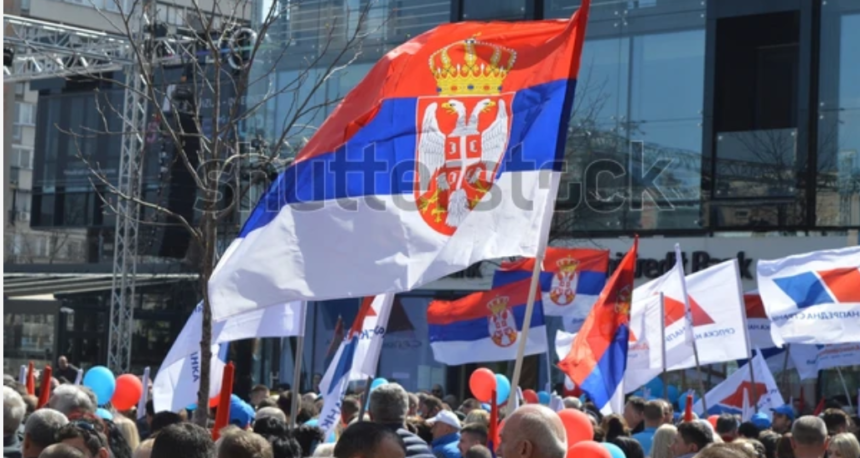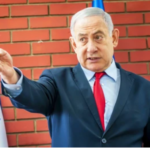The ongoing protests in Serbia against President Aleksandar Vučić are driven by several key factors. It began following a tragic incident in November 2024, where a concrete canopy collapsed at a train station in Novi Sad, killing 15 people. Many Serbians attribute this disaster to widespread government corruption, negligence, and disregard for construction safety regulations. The protesters demand accountability from those responsible for the tragedy and transparency in the government’s actions.
For the first time in his long political career, Vučić faces a serious public challenge to his leadership. However, his staying power remains strong. The EU has an opportunity to play a significant role in mitigating the unrest while luring Serbia out of Russia’s orbit.
In and of itself, the collapse of the concrete canopy would not have evoked such widespread protests had it not been for the pervasive corruption, which fueled a broader anti-corruption movement. The protesters are challenging Vučić’s government over its handling of corruption, allegations of electoral fraud, and manipulation of media and state institutions, reflecting extensive dissatisfaction with his leadership and his party’s dominance over the political landscape.
Is Vučić in danger of losing power?
The protests represent the most significant challenge to Vučić’s authority in his 13 years in power. Despite the pressure, however, Vučić has shown no signs of stepping down. Although he acknowledged the protesters’ grievances, he remained true to his authoritarian nature; he did not yield, and instead, he raised the ante by arresting protesters engaged in peaceful protest. Reporters Without Borders (RSF) reported that during 12 weeks of the anti-corruption protests, at least 12 journalists were assaulted by the police and supporters of President Vučić, which is a gross violation of journalists’ rights.
The opposition is pushing for a transitional government to oversee new elections, but Vučić has rejected this idea. Vučić’s control of the media makes it difficult for opposition forces to gain traction; thus, resorting to massive protests became the only viable tool to express the public’s outrage. While Vučić faces significant pressure, and despite the continuing protests and rising public discontent, his grip on power remains strong due to his control over key institutions and media and his good working relations with the four most significant global powers. Although his political standing could erode, he is still far from contemplating relinquishing power.
Vučić’s staying power
One of the main pillars that allows Vučić to retain power is Serbia’s economic growth, which is sustained due to several factors. Serbia attracts significant foreign investments due to its business-friendly policies and skilled workforce, which fuels economic growth across various sectors, including automotive, IT, real estate, and infrastructure. As a result, Serbia experiences declining inflation, substantial exchange reserves, stable domestic demand, rising incomes, a diversified economy, and government investments in projects like Expo 2027.
He enjoys strong support from his base, and he skillfully leverages nationalism to divert attention from problems. Furthermore, he maintains the backing of influential elites and some opposition figures. He does not shy away from using authoritarian tactics—the use of force and intimidation—to secure power.
Russian Support
Russian President Vladimir Putin has expressed support for Vučić amid the ongoing protests in Serbia. In a recent phone call with Vučić, Putin reaffirmed Russia’s backing for Serbia’s authorities and conveyed that Russia understands the situation well and will continue to support the legitimate authorities in Serbia.
Moreover, Putin and Vučić have agreed to further strengthen their countries’ strategic partnership, emphasizing cultural, historical, religious, and spiritual ties. They also discussed practical cooperation, particularly in the energy sector, as was reported by TASS on March 7, including renewing a gas agreement set to expire on May 31st. This support from Russia is significant for Vučić, as it helps boost his position domestically while navigating his relations with other major powers.
Trump Administration’s Reaction to Serbia’s Unrest
Trump has yet to publicly say anything about the unrest in Serbia, but given his current actions, including criticism of international programs, which Vučić has likewise condemned, it is likely that Trump’s silence on the matter is a sign of tacit approval. Although former US special envoy to the Balkans, Richard Grenell, highlighted the importance of peaceful protests and warned against undermining the rule of law, the Trump administration’s response has aligned more with Vučić’s narrative than the protesters’ demands.
Trump, who prides himself on solving problems that none of his predecessors could, is in a position to influence Vučić’s approach to dealing with the protesters’ grievances. To incentivize Vučić, Trump may increase US financial support for Serbia. The US has provided Serbia nearly $1 billion through USAID over the past 23 years. Additionally, the US is involved in economic development, including humanitarian projects, building schools, and promoting business relationships, and the US Navy is also reaching out to businesses about American-led construction projects in Serbia. To be sure, Trump will lend his support to Vučić and encourage him to quell the protest peacefully, if for no other reason than because he wants to take credit for any positive development.
The EU’s Crucial Role in Mitigating Serbia’s Public Unrest
In light of Serbia’s desire to integrate into the EU and the growing economic ties between the EU and Serbia, the EU can play an essential role in mediating the protests. The EU should take several measures to persuade or pressure Vučić to moderate his approach to dealing with the protest and agree to address the public’s grievances.
The EU should emphasize the importance of democratic principles, such as freedom of assembly and the rule of law, which are the bedrocks for integration into the EU, urging Vučić to address protesters’ demands and ensure a peaceful resolution to the unrest. The EU should also push for reforms in judicial independence and media freedom and encourage the government to improve its record on human rights issues.
The EU should also engage civil society groups and opposition leaders to gain a better grasp of the situation on the ground and support a broad range of voices calling for democratic change. The EU can further use its leverage to ensure the continuation of the reforms as a precondition to furthering Serbia’s integration.
The EU wants to lure Serbia out of Russia’s orbit by substantially expanding economic ties. Belgrade and the European Union signed a deal on July 19, 2024, to give the EU access to raw materials, especially lithium mined in Serbia, to produce sustainable raw materials and reduce its dependence on China. Germany’s Chancellor Scholz described the deal as being necessary for Europe “to remain sovereign in a changing world…” Late last year, Serbia signed a contract to purchase jetfighters from France, which Macron described as “historically significant,” and even canceled its contracts for Russian weapons in January.
Notwithstanding the absence of progress in the past and the continuing unrest, the EU should continue to promote the dialogue between Kosovo and Serbia, albeit it has been challenging and has faced numerous setbacks, with tensions remaining high over Kosovo’s independence and the status of ethnic Serbs in Kosovo. Against this backdrop, the EU must balance its desire for regional stability with the need to push Vučić to undertake democratic reforms and support an inclusive political process.
The unprecedented unrest in Serbia, which could destabilize other Balkan states, presents an opportunity for the EU not only to work closely with Vučić but also to pressure him to address the public’s grievances and show flexibility in the dialogue with Kosovo, which would strengthen EU-Serbia ties. Vučić himself could emerge from the ongoing protest in a stronger position domestically if he only heeds the EU’s recommendations, which would help him advance the process of integration into the European Union that he seeks.









